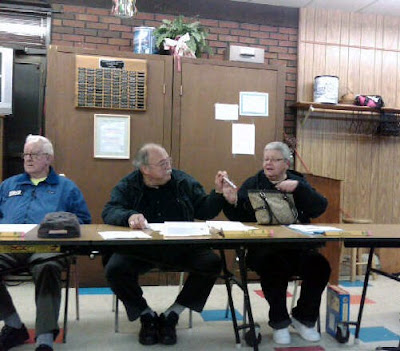
Monday was Columbus Day, and I didn't mention it, but an essay has come to my attention that I think is worthy of belated reprinting. My main personal memory of Columbus Day's past is a speech I once gave at the Duggan Junior High Columbus Day assembly, which I have written about before:

When I was a student at John J. Duggan Junior High School in Springfield I occupied the lowest position in the student class system - the junior high school queer. Everybody is really sexually insecure and confused at that age so one way to prove to yourself and your friends that you're normal is by showing how much you hate the faggot. Fortunately I fell in with some hippies who adopted me as their pet queer and taught me about surviving outside mainstream society and how that was really a superior way to live anyway. Besides, I didn't care what anyone thought because I knew all those straights were virgins and I already had an active sex scene going and was secretly the best fucked boy in my class.
On Columbus Day one year I was picked to read a poem in front of the whole school at the Columbus Day assembly. I read it really dramatically and everyone cheered at the end and the principal Miss Mason congratulated me over the school intercom for the best reading of that poem she had ever heard in her many decades of teaching (so many that my mother also had her as a teacher). Everyone was nicer to me after that, and I realized that people will let you get away with being different and an outsider as long as you entertain them.
Another memory I have is from grammar school, when I was outside star-gazing after supper on Columbus Day, and with my little telescope and the help of a book I took out from the Pine Point Library I found the planet Saturn. I was the kind of weird little kid for whom such things were a big deal.

But I doubt that modern kids have many Columbus Day memories, they hardly know what it is anymore, and what they do know is almost all negative. Happily Thomas A. Bowden from the Ayn Rand Institute wrote a compelling piece this week explaining why Columbus is still relevant and deserving of praise:

Throughout history, prior to the birth of Western civilization in ancient Greece, the world seemed impervious to human understanding. People believed that animistic spirits or capricious deities had supernatural powers to cure diseases, grow crops, and guide the hunter’s arrow toward his prey. To get the attention of these inscrutable spirits, people resorted to prayer, ritual, taboo, and human sacrifice, relying always on the mystic insights of shamans and priests.
This pervasive mysticism had practical consequences: festering disease, perpetual poverty, and a desperate quest for survival that made offensive warfare against human beings seem as natural as hunting animals. Such was the plight of America’s Indians before 1492--and such was Europe’s own plight, once the civilizations of Greece and Rome had given way to the mysticism of Christianity and the barbarian tribes.
It was Western philosophers, scientists, statesmen, and businessmen who liberated mankind from mysticism’s grip. Once scientists revealed a world of natural laws open to human understanding, medical research soon penetrated the mysteries of disease and epidemic, allowing us to look back with pity upon American Indians and other historical victims of diseases now preventable and curable.
On a much wider scale, the Industrial Revolution employed science, technology, and engineering to create material goods in profusion, so that even people of average ability could become affluent by historical standards. By demonstrating how wealth can be created in abundance rather than stolen by armed force, America and the West supplied a moral alternative to the bloody tribal warfare of past eras.
Western civilization’s stress on the value of reason led inexorably to its distinctive individualism. Western thinkers were first to declare that every individual, no matter what his skin color or ancestry, is fully human, possessed of reason and free will--a being of self-made character who deserves to be judged accordingly, not as a member of a racial or tribal collective. And thanks to John Locke and the Founding Fathers, individuals were recognized as possessing individual rights to life, liberty, property, and the pursuit of happiness--rights that made slavery indefensible and led to its eradication, at the cost of a civil war.
These are the facts we are no longer taught--and the measure of that educational failure is the disdain with which Columbus’s holiday is regarded in the country that owes its existence to his courage. It is time to take back Columbus Day, as an occasion to publicly rejoice, not in the bloodshed that occurred before Columbus’s arrival and after, but in our commitment to the life-serving values of Western civilization: reason and individualism. We do so by honoring the great explorer who opened the way for that civilization to flourish in the New World.
Roundabout
Mountainview Farm in Easthampton by Greg Saulmon.

Pine Point Community Council Meeting by John Lysak.

The 1979 class of the sadly defunct Technical High School in Springfield is turning their class reunion into a gathering of all Tech graduates.

Sad art by Beckie Kravetz in the UMass Student Union Gallery.

A painting in the Northampton Brewery.

A painting in the Haymarket Cafe.

Describing the view.

Rise....

And fly.

Blue Cheer got their name from a street brand of LSD. The band's chief creative force Dickie Peterson died Monday at age 61.

No comments:
Post a Comment